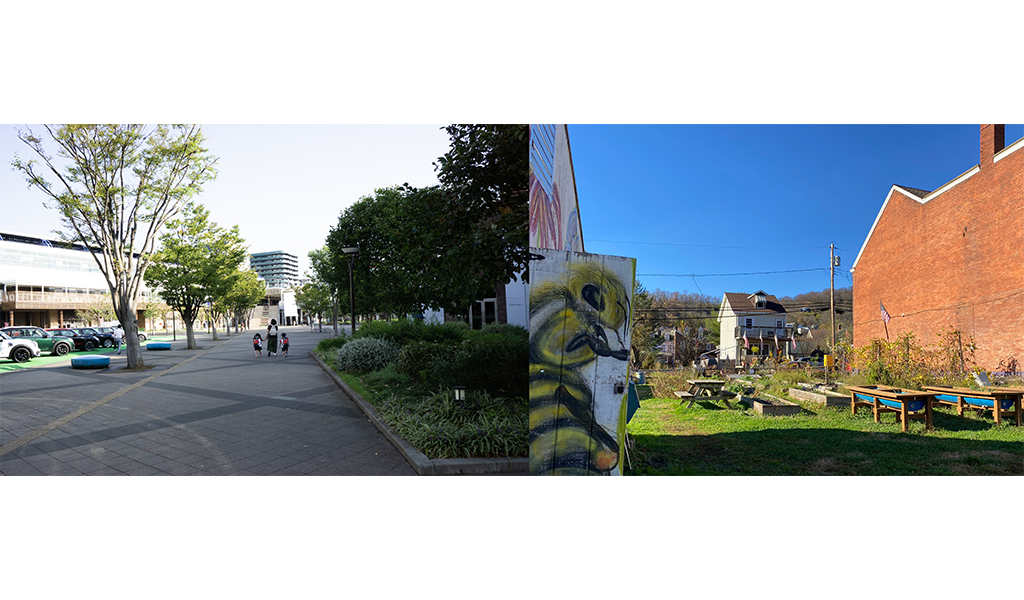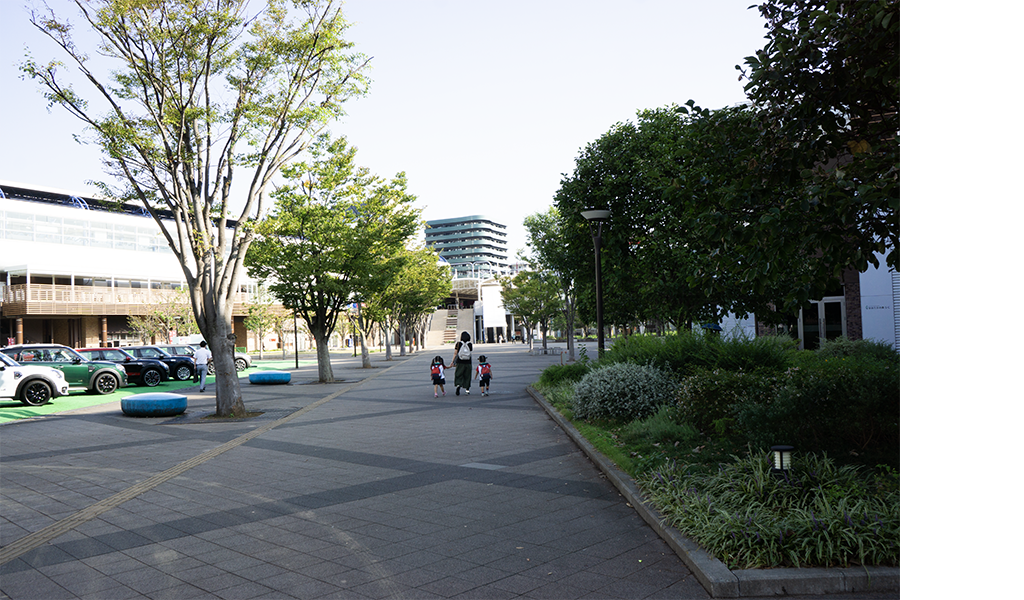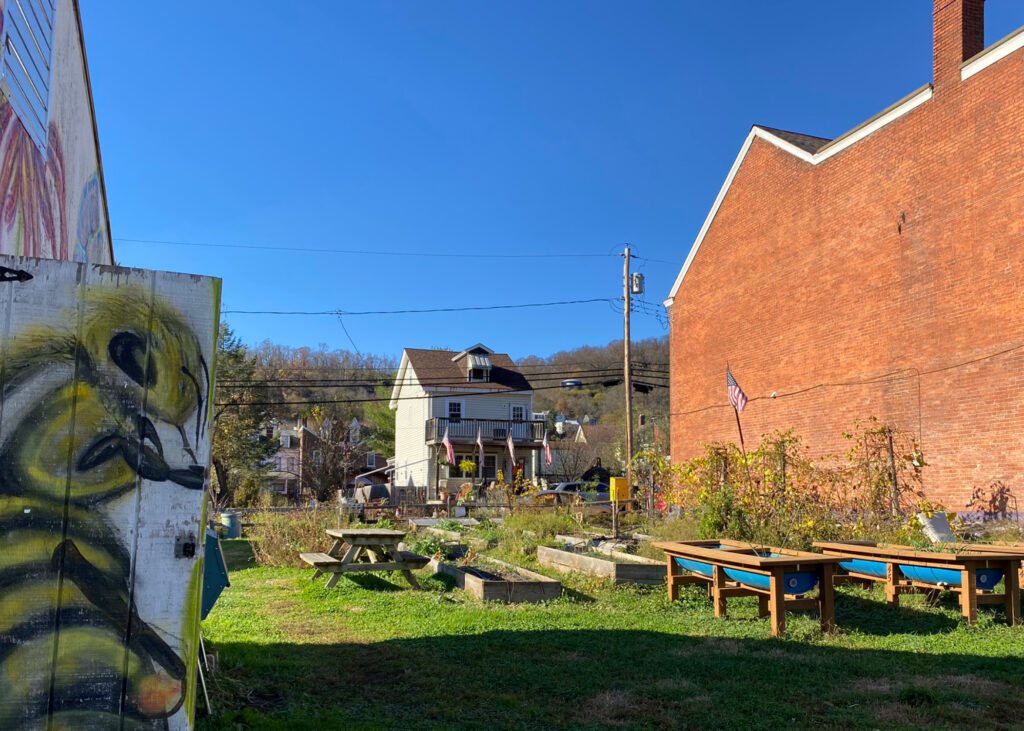Druker Traveling Fellowship Presentations Spring 2023
Date/Time
04/05/2023
4:00 pm - 6:30 pm (EDT)
Location
- Harvard GSD, Piper Auditorium
- 48 Quincy Street
- Cambridge
- MA

The Spring 2023 Druker Traveling Fellowship Presentations featured the 2019 and 2020 Druker Fellows, Carolyn Angius MUP ’19, and Laura Greenberg MAUD ’20. During this special presentation that explored the vanguard of urban design problems and questions, Carolyn presented her research, What Does a Gender-Inclusive City Look Like? Lessons from public spaces and transportation systems designed for gender equity, and Laura presented her research, Exploring EcoDistricts, which explored the results of a participatory urban design framework that integrates sustainability, resilience, and advancing social equity at the neighborhood scale.
Hosted by Joan Busquets, Martin Bucksbaum Professor in Practice of Urban Planning and Design.
The presentations were followed by a panel discussion and reception in Piper Auditorium.
EVENT RECORDING
Carolyn Angius MUP ’19, What Does a Gender-Inclusive City Look Like? Lessons from public spaces and transportation systems designed for gender equity
Carolyn is an urban planner and designer based in Los Angeles, California. She is passionate about partnering with community members to build inclusive, safe, and vibrant public spaces for all, particularly in underserved neighborhoods. Carolyn is a Planning Associate at Kounkuey Design Initiative (KDI) where her work focuses on gender-inclusive transportation and equitable public space planning and design. Prior to joining KDI, Carolyn conducted international research on urban planning and design practices for more gender-inclusive cities as the 2019 Harvard Graduate School of Design Druker Traveling Fellow. Carolyn also has experience in public policy and developing and implementing environmental justice and climate adaptation policy in the Office of California Governor Edmund G. Brown, Jr. Carolyn holds a Bachelor of Arts from Scripps College and a Master in Urban Planning from the Harvard Graduate School of Design.

Mother and children walking in Nagareyama, Japan
What Does a Gender-Inclusive City Look Like? Our cities were designed by and for men. As a result, our built environments are often inaccessible to, limit opportunity for, and carry the specter of danger for over half the population – women and gender non-conforming individuals. Planners and designers around the world have begun transforming their practice to create a public realm that is inclusive of women and gender minorities. This presentation will share lessons learned from cities leading in gender-inclusive planning and design to create spaces that are truly safe, welcoming, efficient, and affordable for those of all genders.
Laura Greenberg MAUD ’20, “Exploring EcoDistricts”
Laura Greenberg is an Associate at Urban American City where she contributes as an urban designer, registered architect, and researcher. Recent work includes public realm design and activation, community wealth-building efforts, and the creative reuse of vacant spaces in legacy cities.
She brings a social and racial justice lens to every project and aims to expand community agency and ownership through design and planning processes. She relies on a blend of archival and contemporary research to understand contexts and inform decisions. Her independent research focuses on registered EcoDistricts across the U.S., and multi-scalar equitable reuse strategies for vacant public schools in Philadelphia, Chicago, Detroit, and Pittsburgh.
She is most recently published as the author of the AIA’s “Equitable Development Frameworks: An introduction and comparison for architects,” co-editor of “Patterned Justice: Design Languages for a Just Pittsburgh,” and contributor to the High Line Network’s “Community First Toolkit.”

One of the Gardens of Millvale, PA
In Exploring EcoDistricts, Laura Greenberg will highlight key research findings on 13 registered EcoDistricts across the United States. She will address ways in which the EcoDistricts Protocol framework is being used across different geographies, its built and non-built impacts, and its strengths and limitations in advancing collaborative, value-based urban design practice.
As cities across the U.S. seek to address equity, sustainability, and climate resilience, a number of neighborhoods have turned to the EcoDistricts Protocol framework to drive change at the neighborhood scale. This framework guides communities through a planning and design process to create both a collaborative governance structure and an action plan to achieve shared community development priorities and objectives.
Drawing from extensive travel documentation and interviews, Greenberg will introduce some of the diverse communities that have used the framework to achieve different purposes. Purposes range from equitable cultural preservation and wealth-building in Seattle, to local food creation and air quality improvements in Millvale, PA, to the integration of stormwater infrastructure in Cleveland. She will discuss built and non-built impacts such as sustainable district-scale systems work in Portland and unexpected cross-municipal collaborations outside of Pittsburgh. Finally, she will reflect on the strengths and limitations of the framework and its certification process, particularly as they relate to racial justice and equity.
Established in 1986 by Ronald M. Druker LF ’76 and by the Trustees of the Bertram A. Druker Charitable Foundation, the Druker Traveling Fellowship is open to all GSD Master’s degree candidates who demonstrate excellence in the design of urban environments. The fellowship offers students the opportunity to travel domestically or abroad to pursue study that advances their understanding of urban design.
This event was organized by the Development and Alumni Relations Department and the Department of Urban Planning and Design. Please contact Tiniqua Patrick, Events and Outreach Coordinator, at [email protected] if you have any questions.
